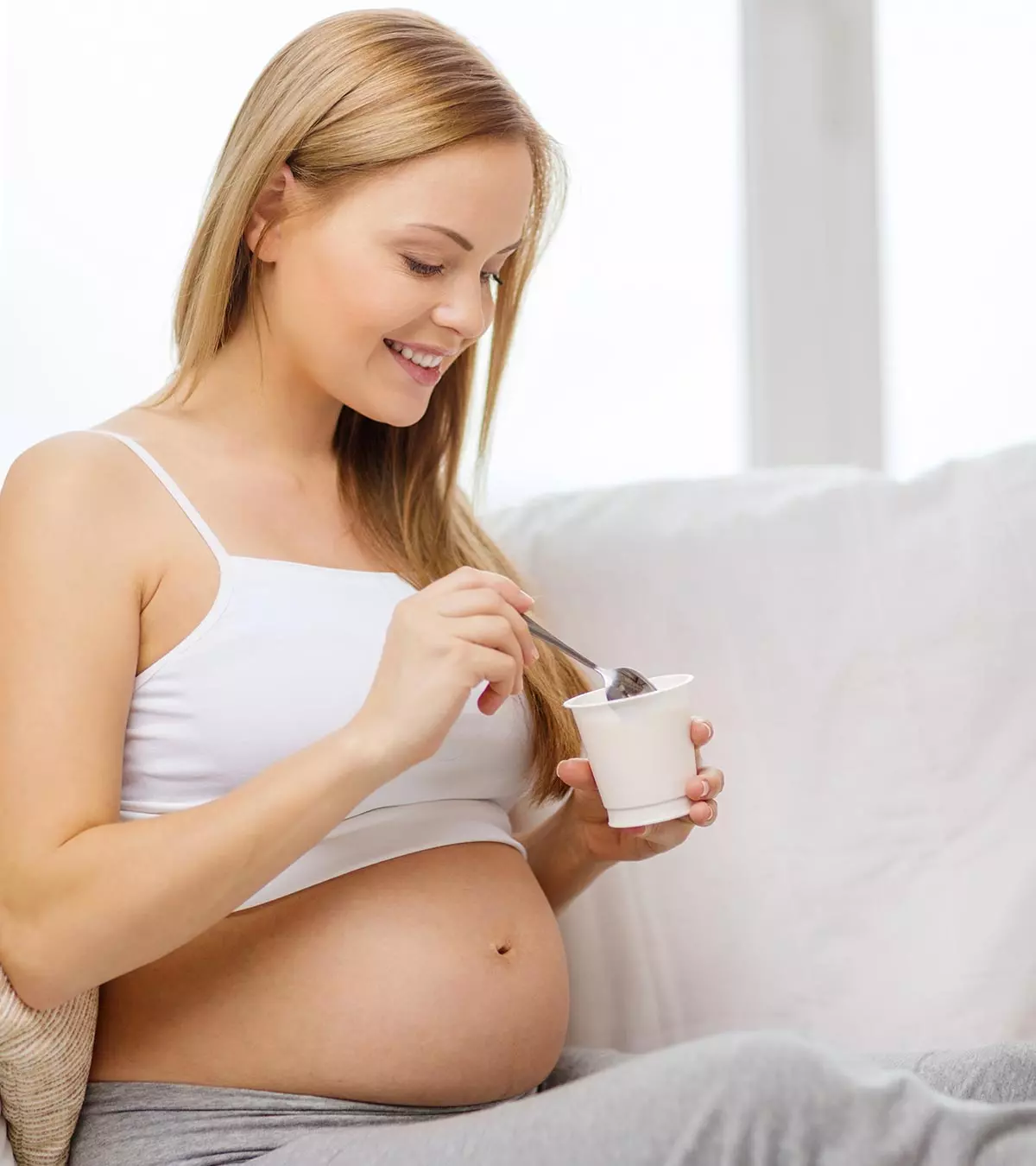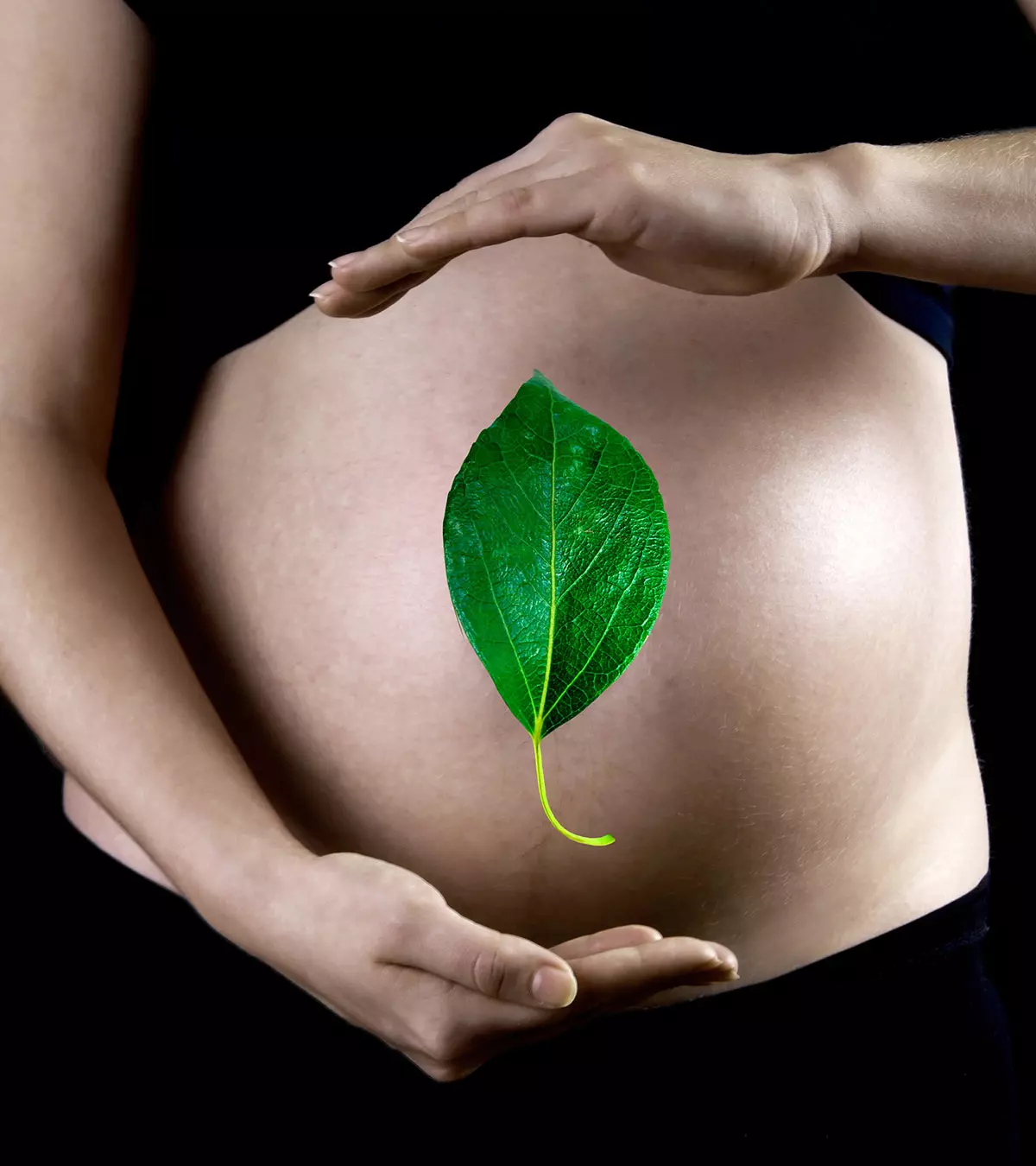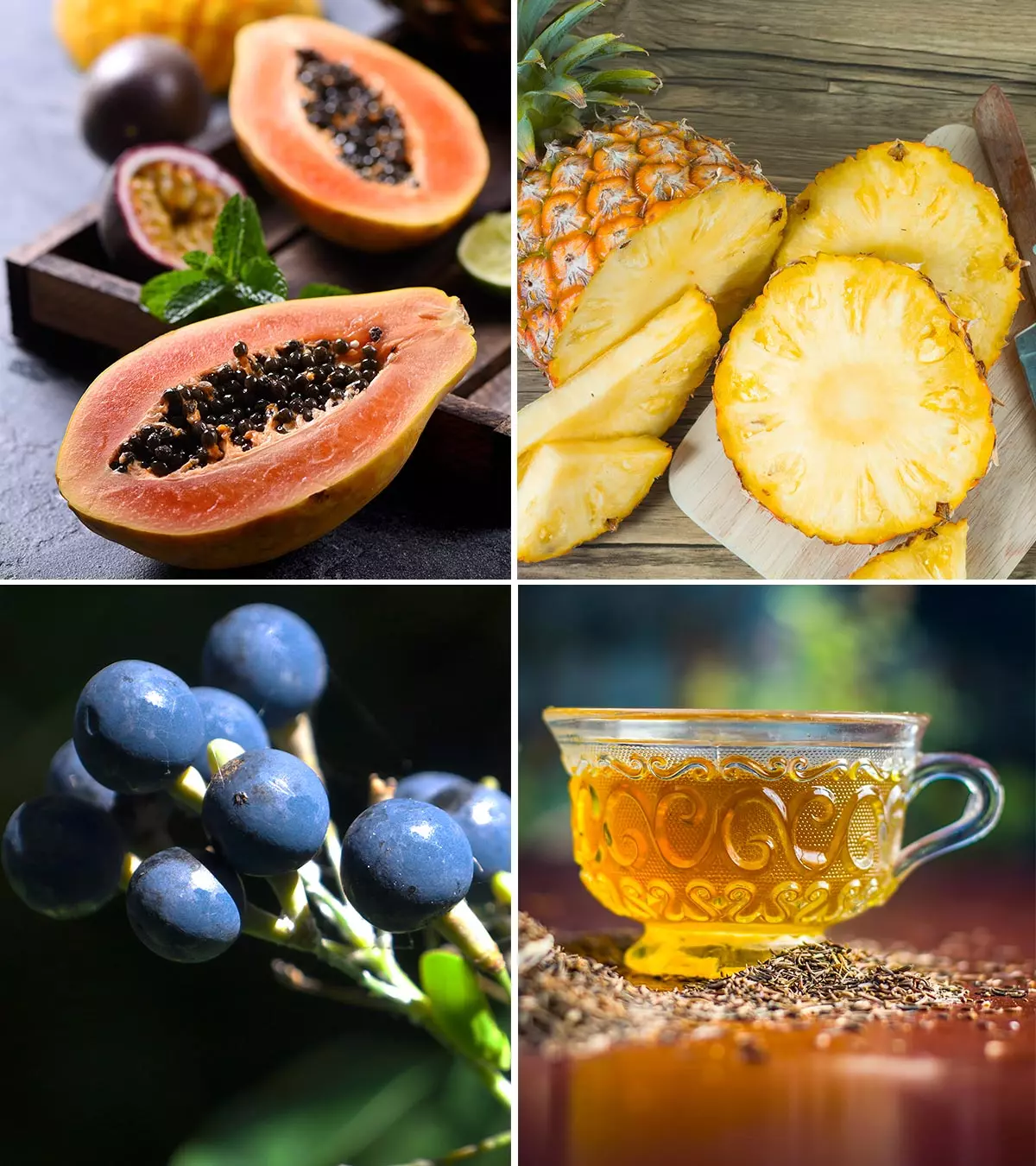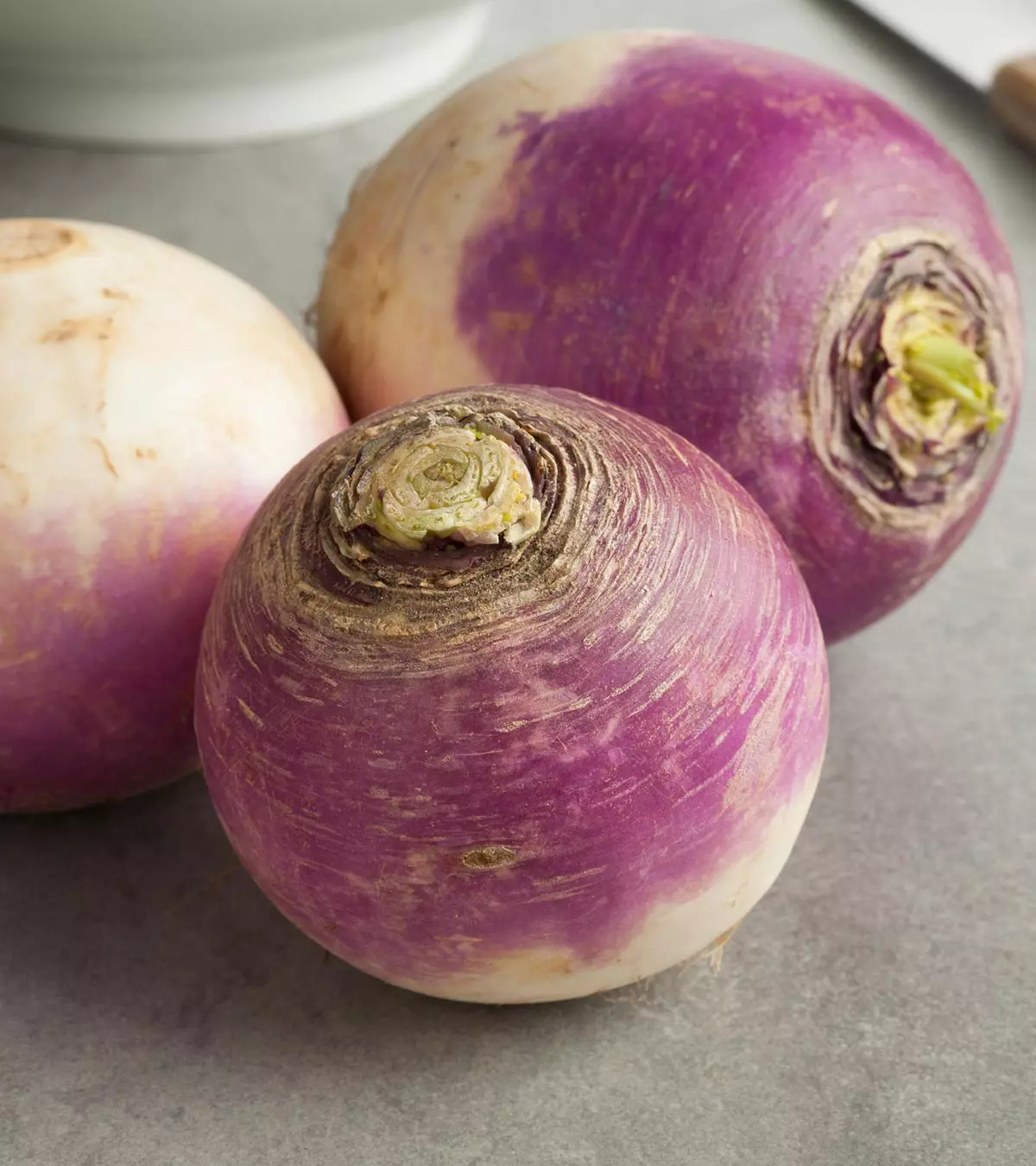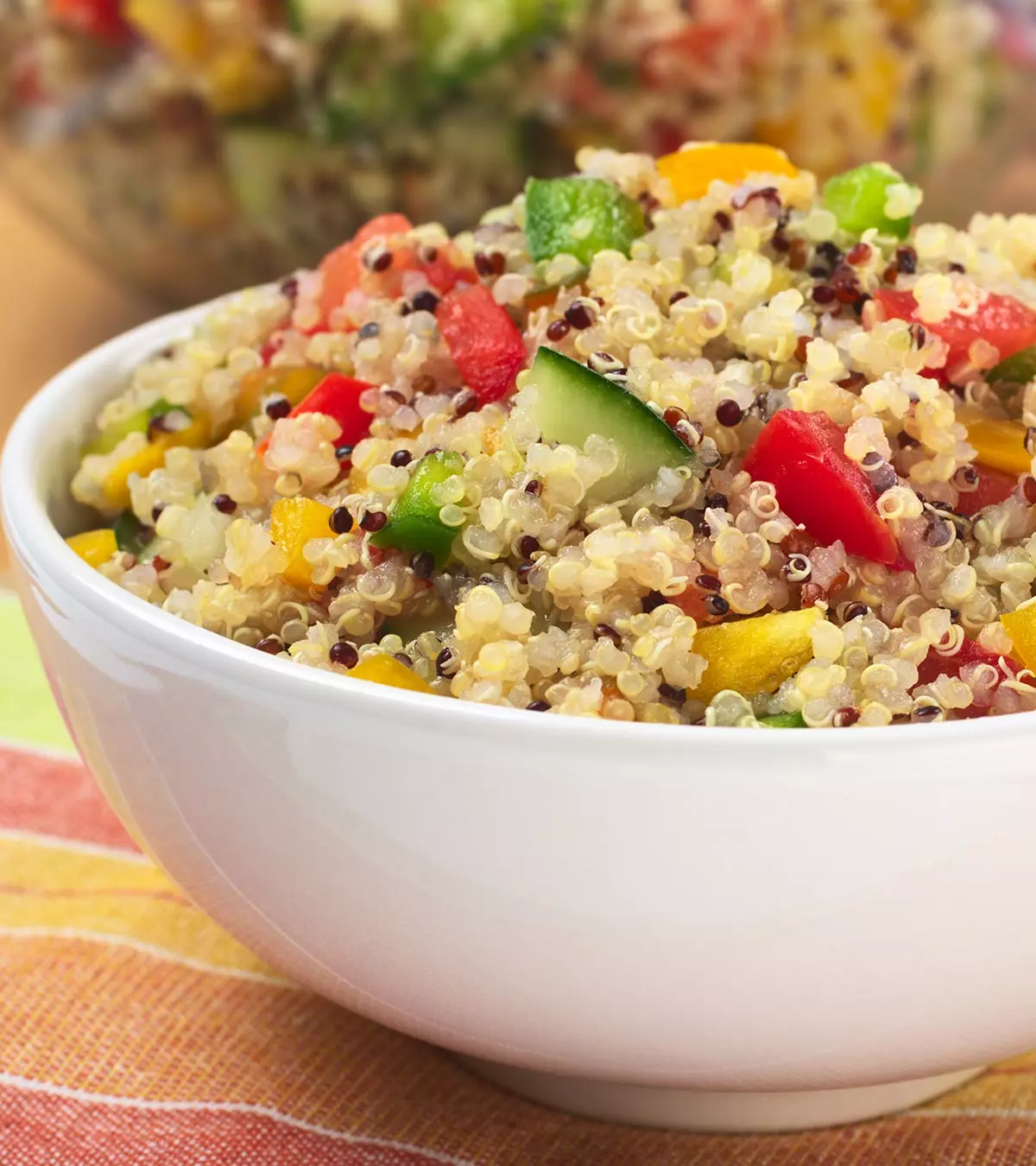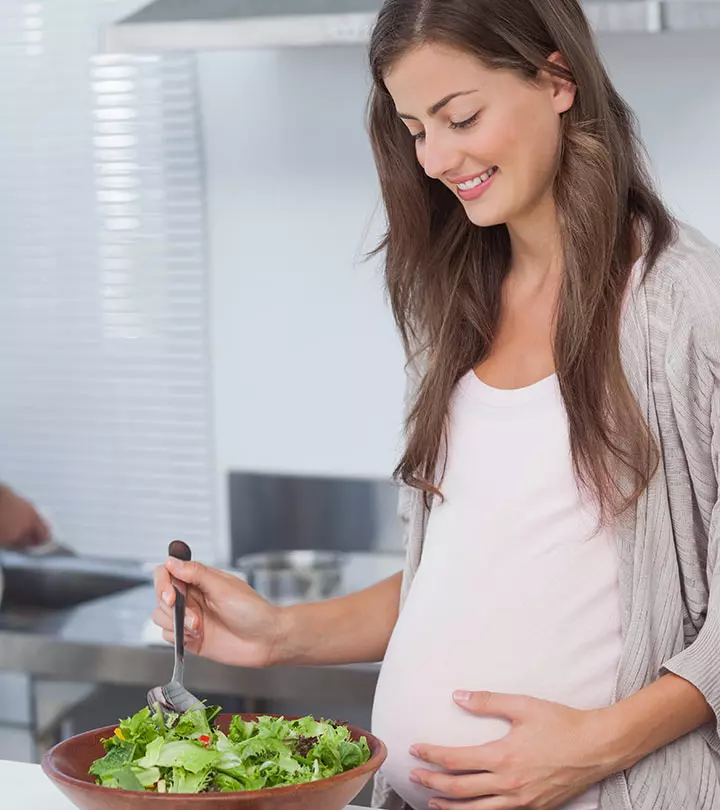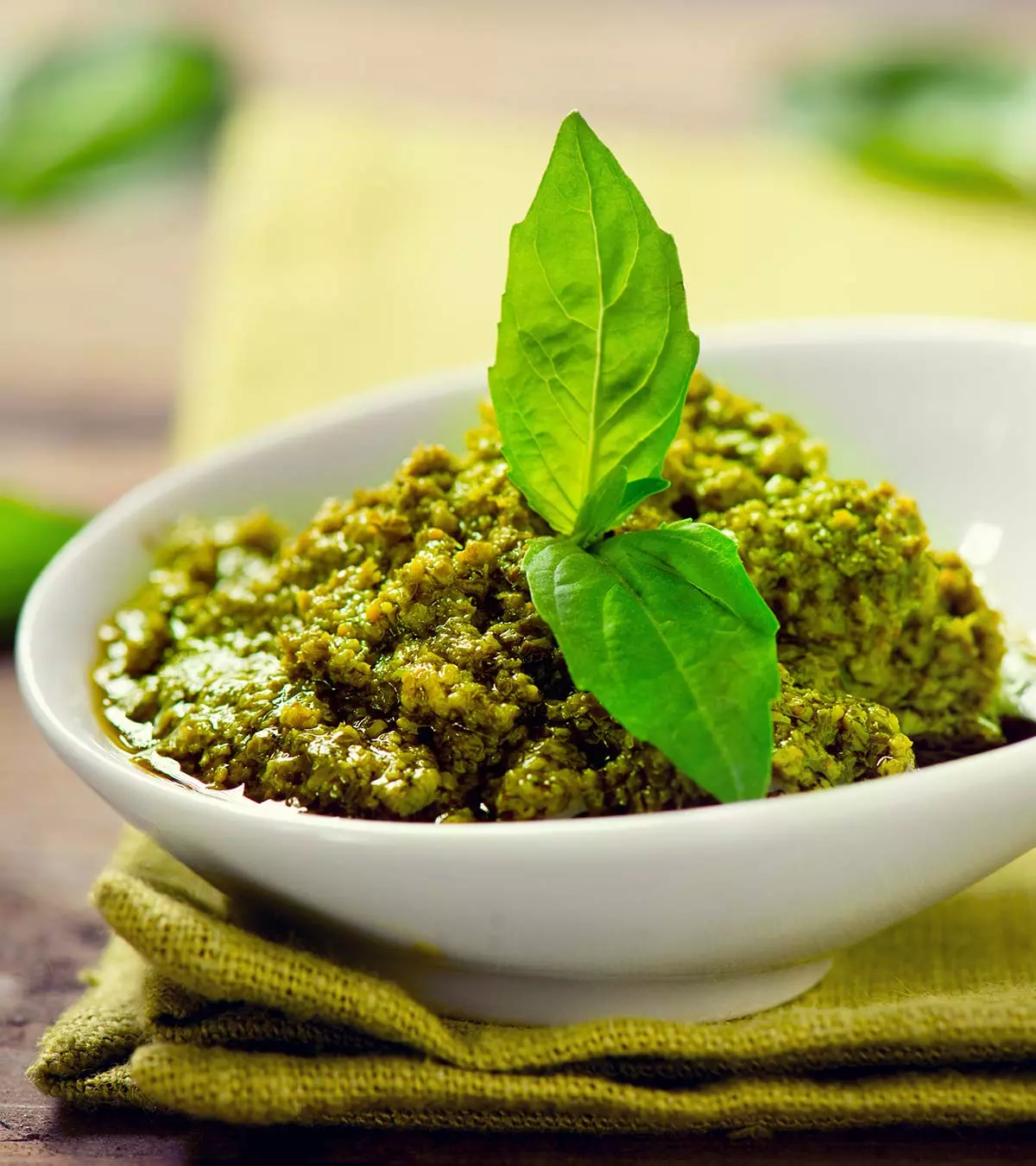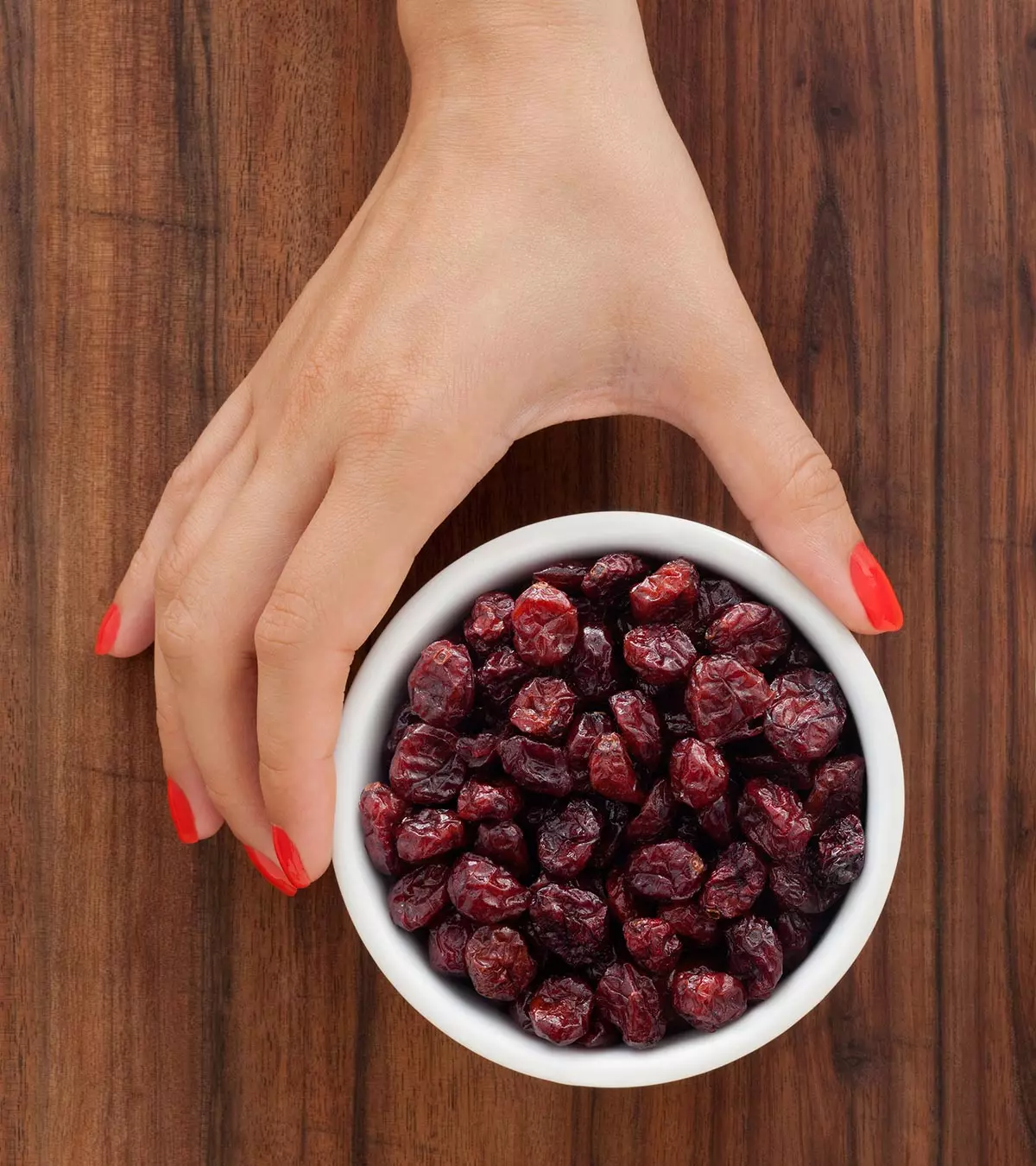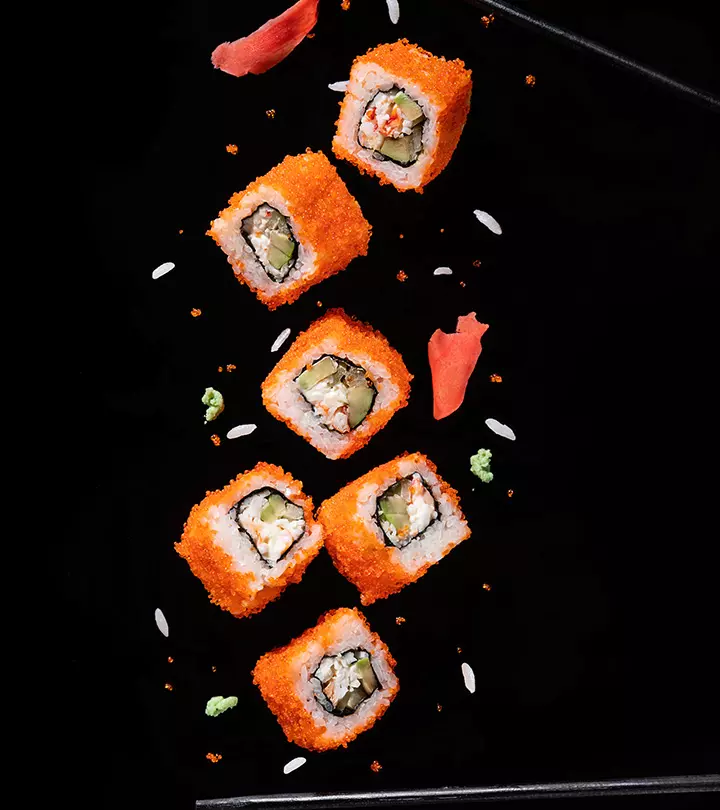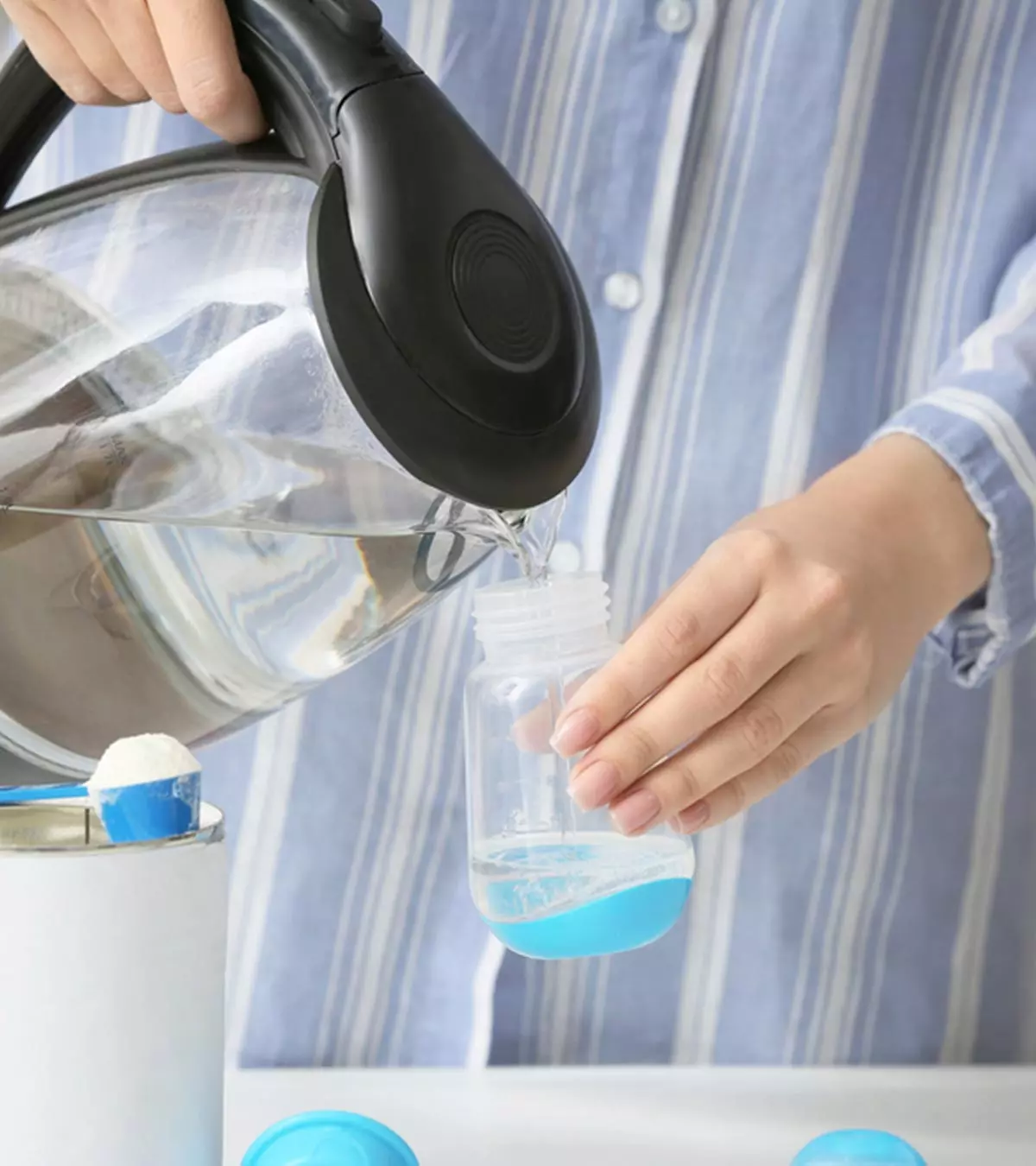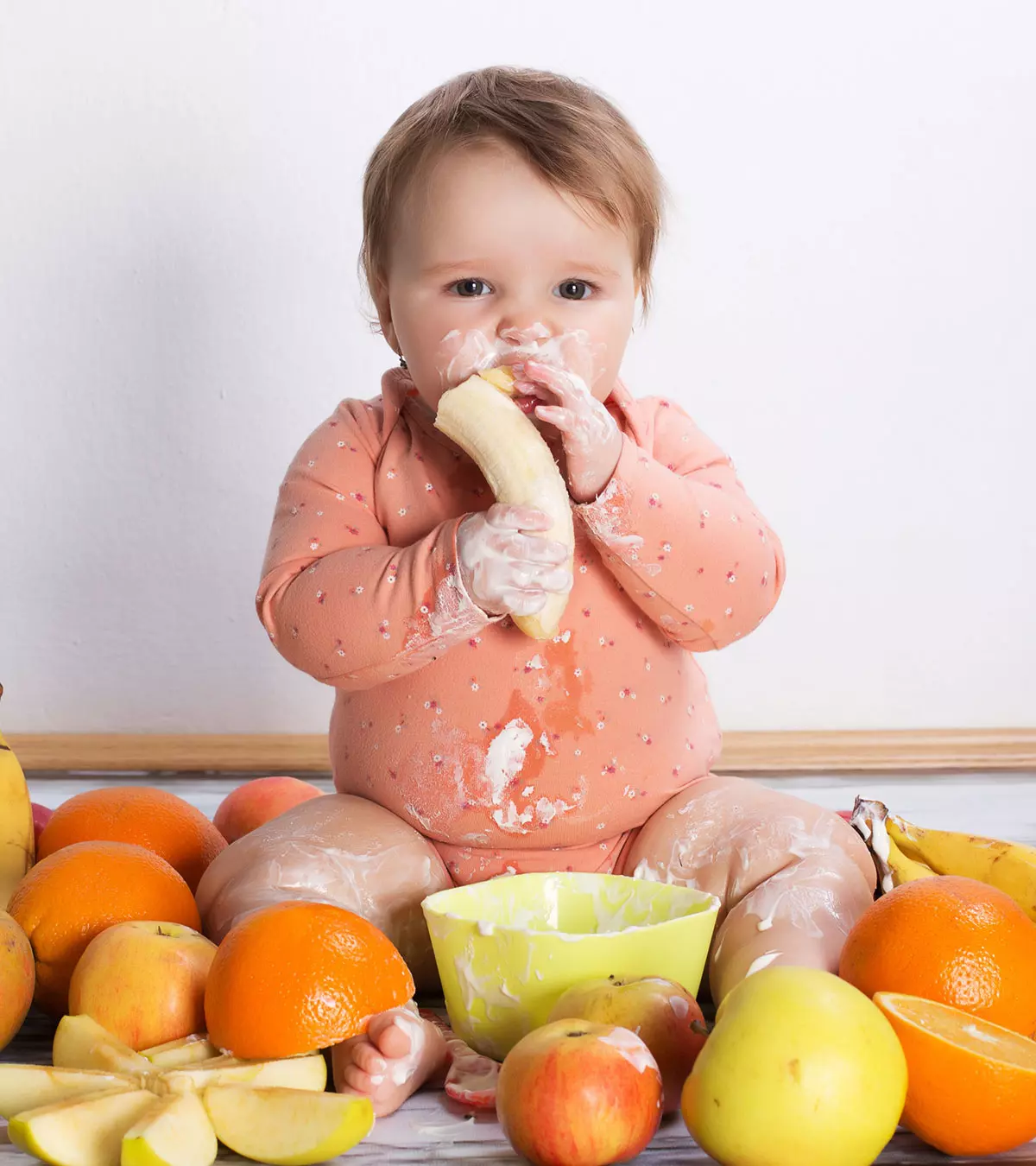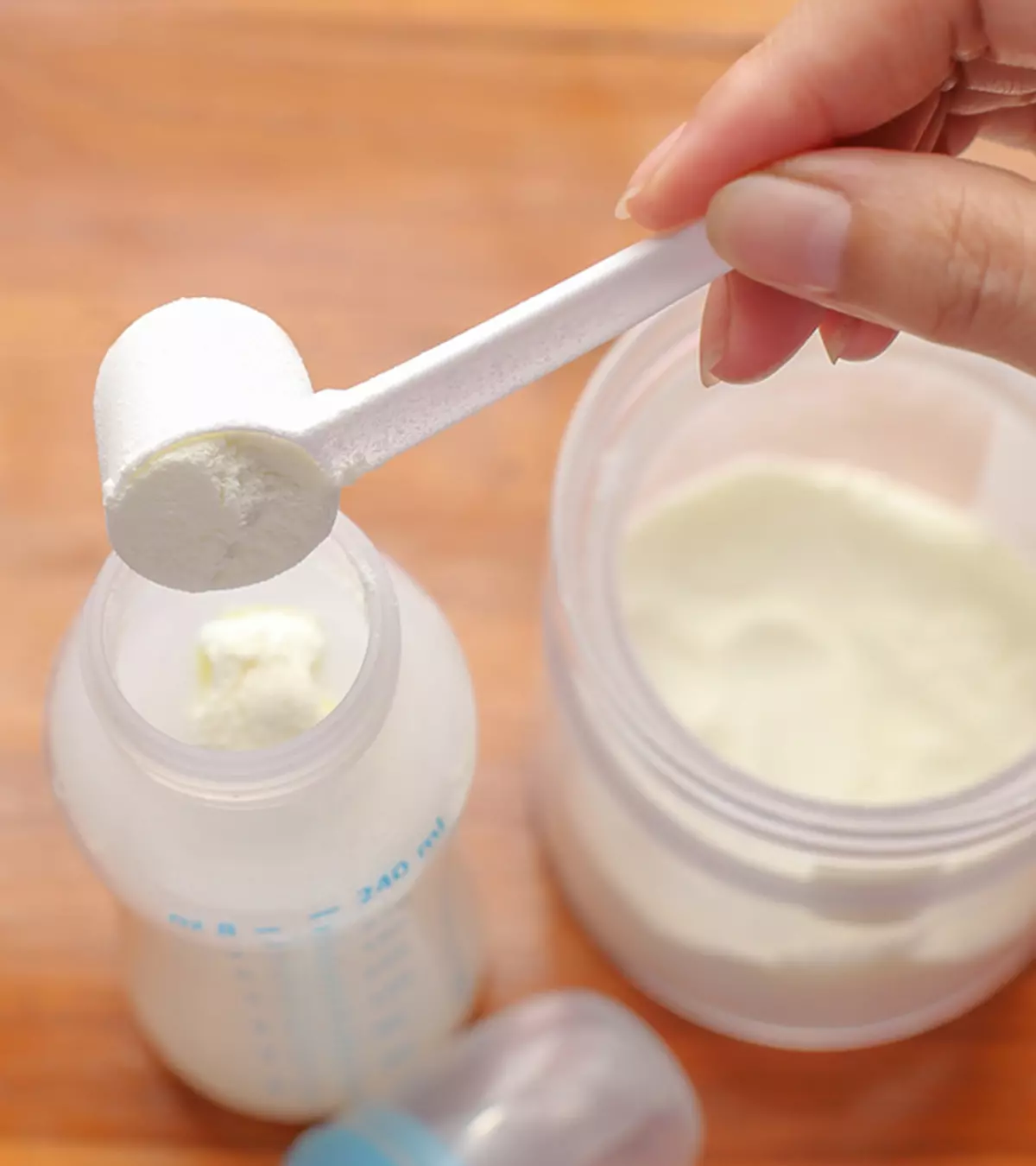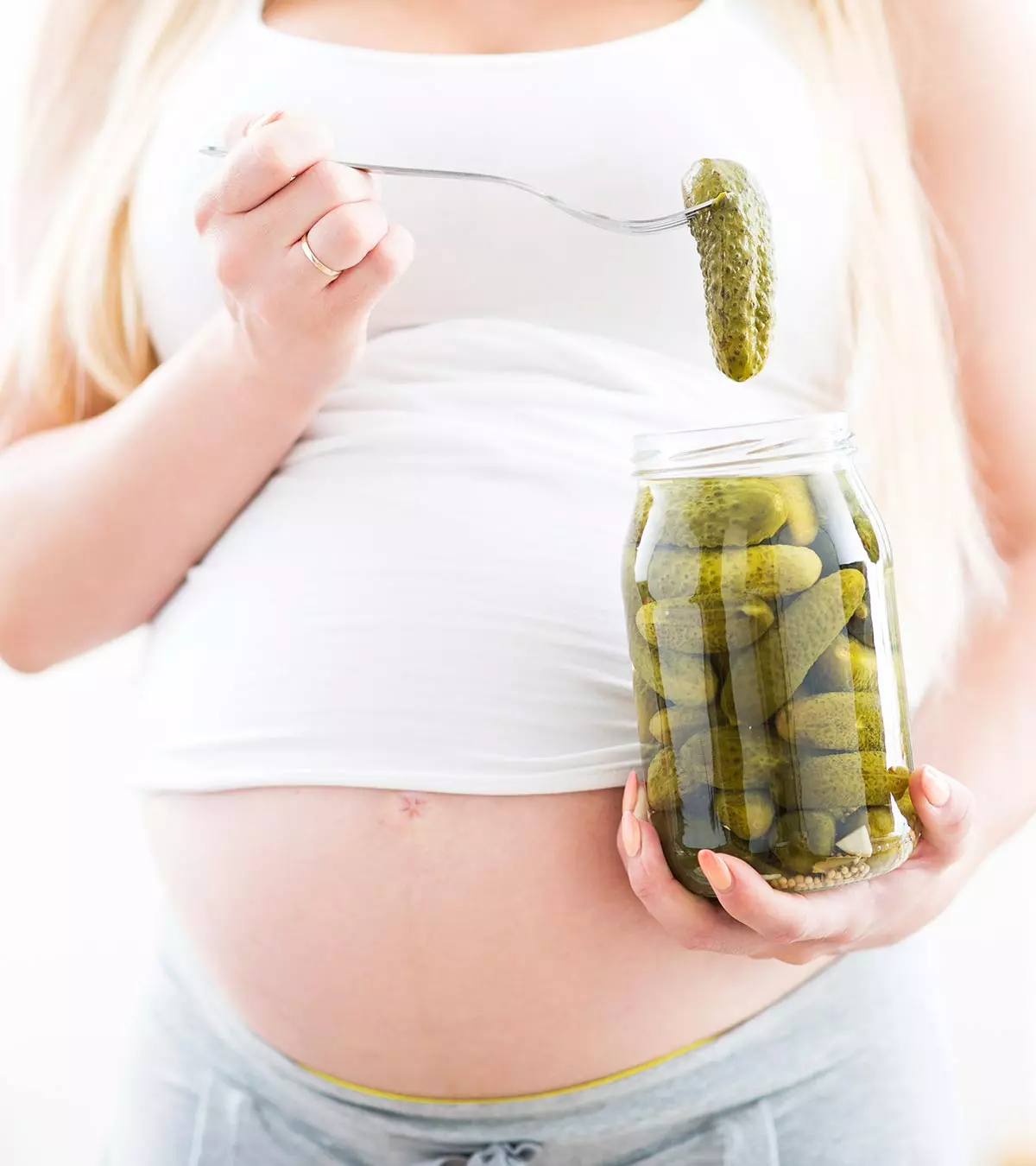
Image: ShutterStock
Many women crave pickles during pregnancy. However, they remain unsure whether eating them would be healthy for their baby or not. Pickles are low in nutritional value and high in sodium. When eaten in small quantities, they do not harm the growing fetus in any way. However, if taken in excess, they may cause health complications and affect the growth of the fetus. Therefore, it is best to consult your doctor about the right amount of pickle you can have. You may also read our post for details on the safety of having pickles during pregnancy, their benefits, and the associated risks of excessive consumption.
Key Pointers
- Pickles are a food that pregnant women often crave.
- While low in nutrition, pickles can be consumed in moderation without harm.
- Pickle juice contains significant levels of crucial electrolytes, such as sodium and potassium.
- The high sodium level in pickles has been linked to water retention and elevated blood pressure in pregnant women.
- Excessive consumption of pickles over a long period may be harmful to both the expectant mother and the baby.
Is It Safe To Eat Pickles During Pregnancy?
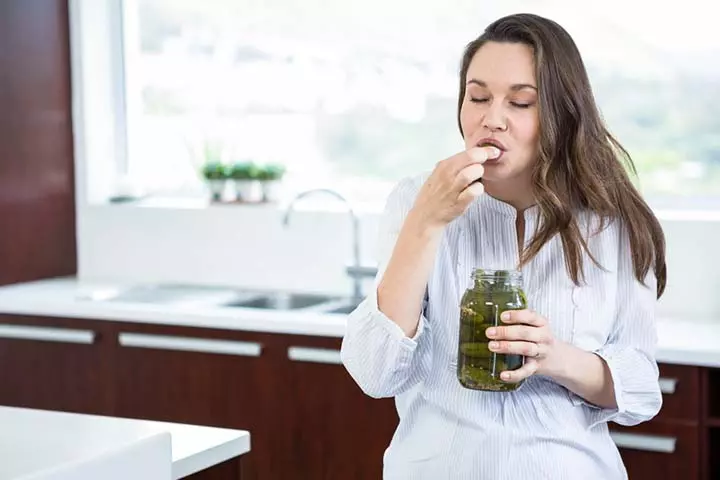
Image: Shutterstock
Pickle or pickled cucumber is one of the most craved foods during pregnancy. Most women want to eat pickles throughout their pregnancy, while some may only have cravings in certain months. If you think you are suddenly having an excessive craving for pickles, you are most likely not the only one. Eating small amounts of pickle or pickle juice is alright, as long as you don’t have any reaction to it (1).
Pickles have little nutritional value. One ounce of pickle may contain no amount of protein, fat or cholesterol and less than one gram of carbohydrates (2). This is less than 0.1 percent of the amount of carbohydrates you should ideally have on a daily basis while you are pregnant. Pickle juice does contain high amounts of vitamin C and sodium. It also contains very small amounts of potassium.
While some pickles are fermented foods, others may be unfermented. Fermented pickles are good sources of probiotics, which are good for the digestive health of the mother. As long as you are not overdoing it, eating pickles will not harm you or your unborn baby. In fact, eating pickles in moderation may actually do you some good while you are pregnant.
Mary Sabat, MS, a nutritionist and an ACE-certified trainer from Alpharetta, Georgia, says, “Pickles are fine during pregnancy, but like any other food, should be consumed in moderation. I would recommend my clients to look for pickles that do not contain high fructose corn syrup and try to stick to the most organic ones. Since pickles are high in sodium, I would also limit them since pregnancy may cause some fluid retention.”
The Reason Pregnant Women Crave Pickles
Pregnant women may crave pickles due to hormonal changes and the body’s need for specific nutrients during pregnancy. While cultural stories often link cravings to satisfying pregnant women’s desires for unusual foods, scientific understanding suggests a more complex picture.
Cravings are thought to be a Darwinian mechanism addressing the body’s demand for essential nutrients. However, the evidence supporting specific cravings for certain nutrients, like calcium, is weak. Scientifically, it’s challenging to quantify cravings.
Recent studies focus on the physiological aspects and reveal that during pregnancy, resistance to leptin is developed. Leptin is a hormone responsible for reducing appetite, and pregnancy-induced leptin resistance leads to increased hunger. Additionally, altered smell and taste perception, common in pregnancy, may contribute to cravings. Thus, the craving for pickles may be influenced by hormonal changes and sensory sensitivity during pregnancy (3).
Helps Maintain Proper Balance Of Electrolytes In Your Body
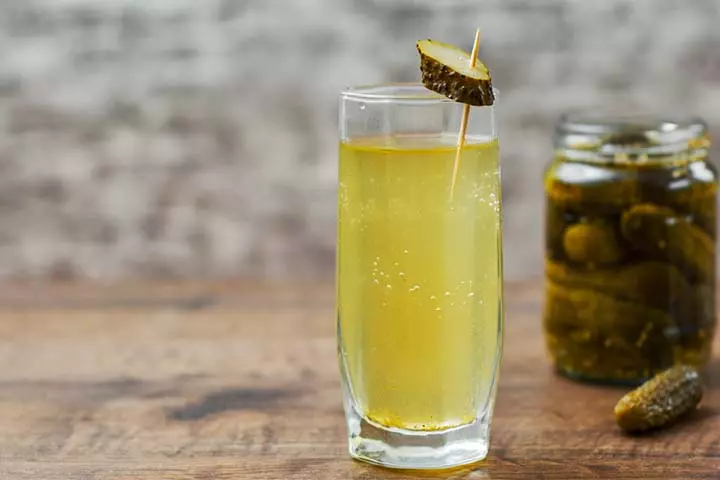
Image: Shutterstock
Potassium and sodium are the two main electrolytes in your body. These are minerals that help in conducting electrical transmissions in your body. When you are pregnant, your body starts retaining more fluid. During these months, your baby’s needs from your body also increase. This causes an increase in your body’s need for electrolytes. Pickle juice contains some amount of potassium and a good amount of sodium (2). Eating pickles during pregnancy in moderation can help you meet these growing needs.
Risk To Your Unborn Baby And You From Excess Sodium Content In Pickles
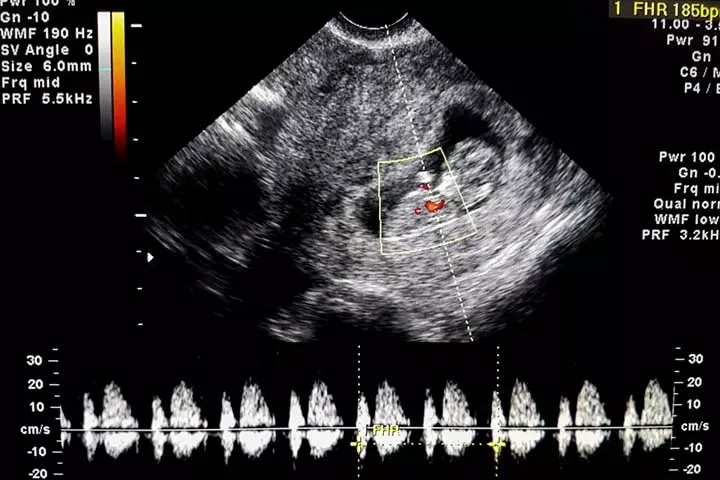
Image: Shutterstock
Pickles contain a very high amount of sodium. This can negate any benefits that eating pickles may have during pregnancy. High sodium intake can be dangerous for your unborn baby and you if taken regularly over a period of time. Therefore, it is essential to maintain food safety.
When you eat too much sodium it can make you feel dehydrated. An overdose of sodium can also lead to high blood pressure. When you are pregnant, you are the only source of nutrition for your baby. High levels of sodium in your body will also have a negative impact on your unborn baby’s growth and development. A study published in The American Journal of Physiology – Renal Physiology’s August 2011 demonstrated that excess sodium can affect the development of fetal kidneys in mice (4). It can also increase the risk of high blood pressure in babies in the later years.
During your pregnancy, the many changes happening inside your body can lead to an increase in your blood pressure. This can cause a dangerous condition known as gestational hypertension, also known as GH, or accentuate existing preeclampsia/ eclampsiaiA complication of high blood pressure in pregnant women, characterized by the onset of convulsions during pregnancy or childbirth conditions. According to the CDC, the prevalence of hypertensive disorders of pregnancy among delivery hospitalizations increased from 13.3% to 15.9% between 2017 and 2019. Preeclampsia in pregnancy can cause a spike in your blood pressure, can cause seizuresiSudden, uncontrollable electrical activity in the brain leading to jerking muscular movements or loss of consciousness (eclampsia), cause damage to the kidneys, and also damage your blood vessels. It can also lead to swelling in the brain, cause a loss in protein, and affect the supply of oxygen and nutrients to your baby.
In case of GH, a low-sodium maternal diet can sometimes help alleviate the conditions. In severe cases, the baby may need to be delivered immediately. This can be risky, especially if the delivery is too premature. It can also risk the baby’s chances of survival. A high sodium intake can often turn a mild case of GH into a severe one. It is highly recommended you limit sodium intake and avoid pickles with excess salt, strong spices, or artificial preservatives. Also, eat only as much pickle as recommended by your doctor.
 Quick fact
Quick factFrequently Asked Questions
1. Do pickles help with pregnancy nausea?
When it comes to managing pregnancy nausea and morning sickness, individual experiences may vary. While some women find relief from bland foods, others have reported that pickles and spicy foods help to alleviate their symptoms. It’s important to listen to your body and find what works best for you (5).
2. Are there any alternative snacks to pickles for pregnant women with cravings?
If you wish to explore alternative snacks, a few options include cucumber slices or carrot sticks with lemon juice, boiled chickpeas or roasted nuts sprinkled with salt and pepper, wholegrain crackers, and spiced yogurt. However, consult your doctor if you have doubts about incorporating these snacks into your pregnancy diet.
Despite their lack of nutritious value, pickles contribute flavor and stimulate your taste buds with their sour and sweet flavor. If you are craving pickles during pregnancy, you may safely consume them to curb your cravings as long as you have them in limited quantities. But don’t overeat them as it may lead to pregnancy complications such as high blood pressure caused due to increased salt levels, which can also harm fetal health. Also, consult your doctor to learn about its consumption to prevent any probable adverse effects.
Infographic: Pros and Cons Of Eating Pickles During Pregnancy
Do you crave pickles in general and in pregnancy specifically? Since pregnancy is a crucial phase, it is always better to learn about the pros and cons before consuming any dish. This infographic details the potential benefits and disadvantages of consuming pickles during pregnancy. Consult your OB-GYN promptly if you notice any allergic reactions.

Illustration: Momjunction Design Team
Illustration: Is It Safe To Eat Pickles During Pregnancy?
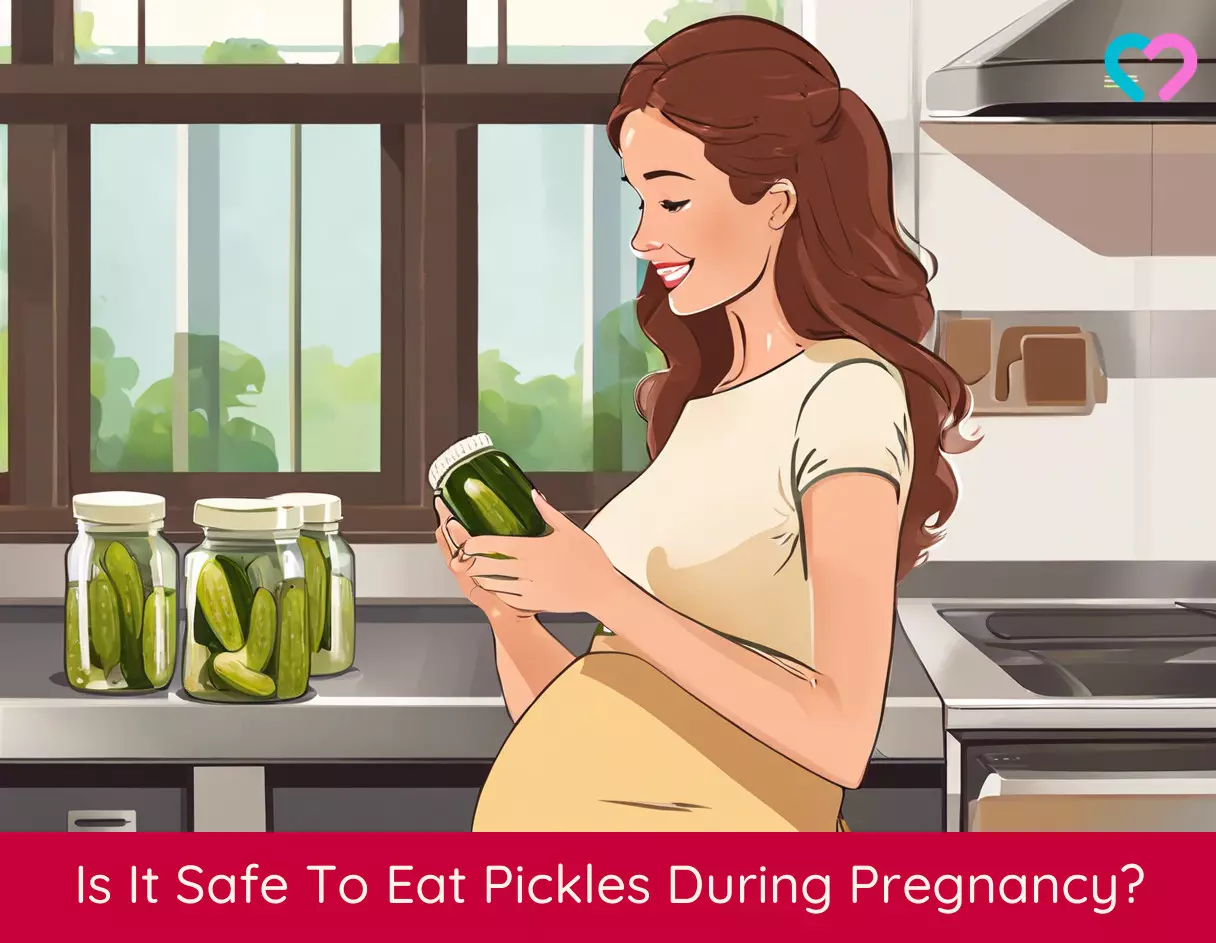
Image: Stable Diffusion/MomJunction Design Team
References
- Natalia C. Orloff and Julia M. Hormes; (2014); Pickles and ice cream! Food cravings in pregnancy: hypotheses, preliminary evidence, and directions for future research
https://www.ncbi.nlm.nih.gov/pmc/articles/PMC4172095/ - Pickles, sweet (includes bread and butter pickles), cucumber.
https://www.nutritionvalue.org/Pickles%2C_sweet_%28includes_bread_and_butter_pickles%29%2C_cucumber_nutritional_value.html?size=1+ounce+%3D+28.3495+g - The Mystery of Pregnancy Cravings.
https://www.bu.edu/synapse/2010/07/28/the-mystery-of-pregnancy-cravings/ - Nadezda Koleganova et al., (2011); Both high and low maternal salt intake in pregnancy alter kidney development in the offspring.
ttps://journals.physiology.org/doi/full/10.1152/ajprenal.00626.2010 - What helps nausea and vomiting during pregnancy.
https://www.hancockhealth.org/2017/01/what-helps-nausea-vomiting-pregnancy/ - Jin Kyung Kim et al.; (2005); Listeria monocytogenes survival in refrigerator dill pickles
https://pubmed.ncbi.nlm.nih.gov/16300073/ - Vanitha Janakiraman; (2008); Listeriosis in Pregnancy: Diagnosis Treatment and Prevention
https://www.ncbi.nlm.nih.gov/pmc/articles/PMC2621056/ - Are Pickles Good for You?
https://health.clevelandclinic.org/are-pickles-good-for-you
Community Experiences
Join the conversation and become a part of our nurturing community! Share your stories, experiences, and insights to connect with fellow parents.
Read full bio of Dr. Arpita Chakraborty
- Mary Sabat is certified in personal training by the American Council of Exercise (ACE) and has 30 years experience as a fitness trainer, diet planner, and holistic health coach. She did her BS in Dietetics and Nutrition at University of Delaware and MS in Human Nutrition with an emphasis on Exercise Science, at Rutger’s University.
 Mary Sabat is certified in personal training by the American Council of Exercise (ACE) and has 30 years experience as a fitness trainer, diet planner, and holistic health coach. She did her BS in Dietetics and Nutrition at University of Delaware and MS in Human Nutrition with an emphasis on Exercise Science, at Rutger’s University.
Mary Sabat is certified in personal training by the American Council of Exercise (ACE) and has 30 years experience as a fitness trainer, diet planner, and holistic health coach. She did her BS in Dietetics and Nutrition at University of Delaware and MS in Human Nutrition with an emphasis on Exercise Science, at Rutger’s University. - Bridget MacDonald is a registered dietitian with over 20 years of experience in the clinical, community and fitness industry. She provides medical nutrition therapy and specializes in sports nutrition and diet. Bridget did her education at Western Michigan University.
 Bridget MacDonald is a registered dietitian with over 20 years of experience in the clinical, community and fitness industry. She provides medical nutrition therapy and specializes in sports nutrition and diet. Bridget did her education at Western Michigan University.
Bridget MacDonald is a registered dietitian with over 20 years of experience in the clinical, community and fitness industry. She provides medical nutrition therapy and specializes in sports nutrition and diet. Bridget did her education at Western Michigan University.
Read full bio of Ria Saha
Read full bio of Swati Patwal
Read full bio of Dr. Joyani Das






 Did you know?
Did you know?




